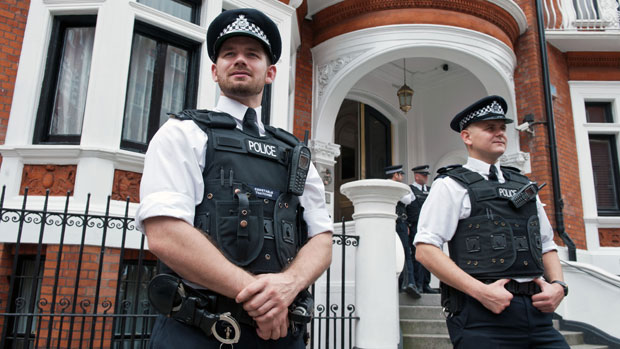Police 'on the verge of decriminalising' some crimes
Police have 'almost given up' investigating car crime and criminal damage, says police watchdog

A free daily email with the biggest news stories of the day – and the best features from TheWeek.com
You are now subscribed
Your newsletter sign-up was successful
Offences such as criminal damage and car crime are "on the verge of being decriminalised" because police have "almost given up" on investigating them, the police watchdog has warned.
Following an inspection of police forces in England and Wales, HM Inspectorate of Constabulary (HMIC) found that victims of high-volume offences were asked questions by call-handlers to assess the likelihood of their crime being solved. In some cases, victims were even being encouraged to investigate the offences themselves by checking for CCTV and fingerprints, talking to neighbours or looking at second-hand sales websites to see if they could find their property.
Almost nine in ten forces admitted to dealing with some cases over the telephone and closed some cases without the victim ever meeting a police officer.
The Week
Escape your echo chamber. Get the facts behind the news, plus analysis from multiple perspectives.

Sign up for The Week's Free Newsletters
From our morning news briefing to a weekly Good News Newsletter, get the best of The Week delivered directly to your inbox.
From our morning news briefing to a weekly Good News Newsletter, get the best of The Week delivered directly to your inbox.
Roger Baker, the inspector who led the review, told the BBC: "It's more a mindset – that we no longer deal with these things. And effectively what's happened is a number of crimes are on the verge of being decriminalised."
He added: "It's not the fault of the individual staff; it's a mindset thing that's crept in to policing to say 'we've almost given up'."
The HMIC report also found that victims received a different response from police depending on where they lived; for example, attendance rates varied from 39 per cent in Warwickshire to 100 per cent in Cleveland.
Sir Hugh Orde, the head of the Association of Chief Police Officers, said: "The reality of austerity in policing means that forces must ensure that their officers' time is put to best use and this means prioritising calls." He said that this means in some instances non-emergency crimes might be dealt with over the phone but added that this is "not an abdication of forces' duty of care to victims".
A free daily email with the biggest news stories of the day – and the best features from TheWeek.com
Forces in England and Wales are expected to have cut £2.4bn from their budgets between 2011 and 2015 following reductions in their grants from central government. As a result, the number of police officers has dropped by around 15,825 – or 11 per cent – in the last four years.